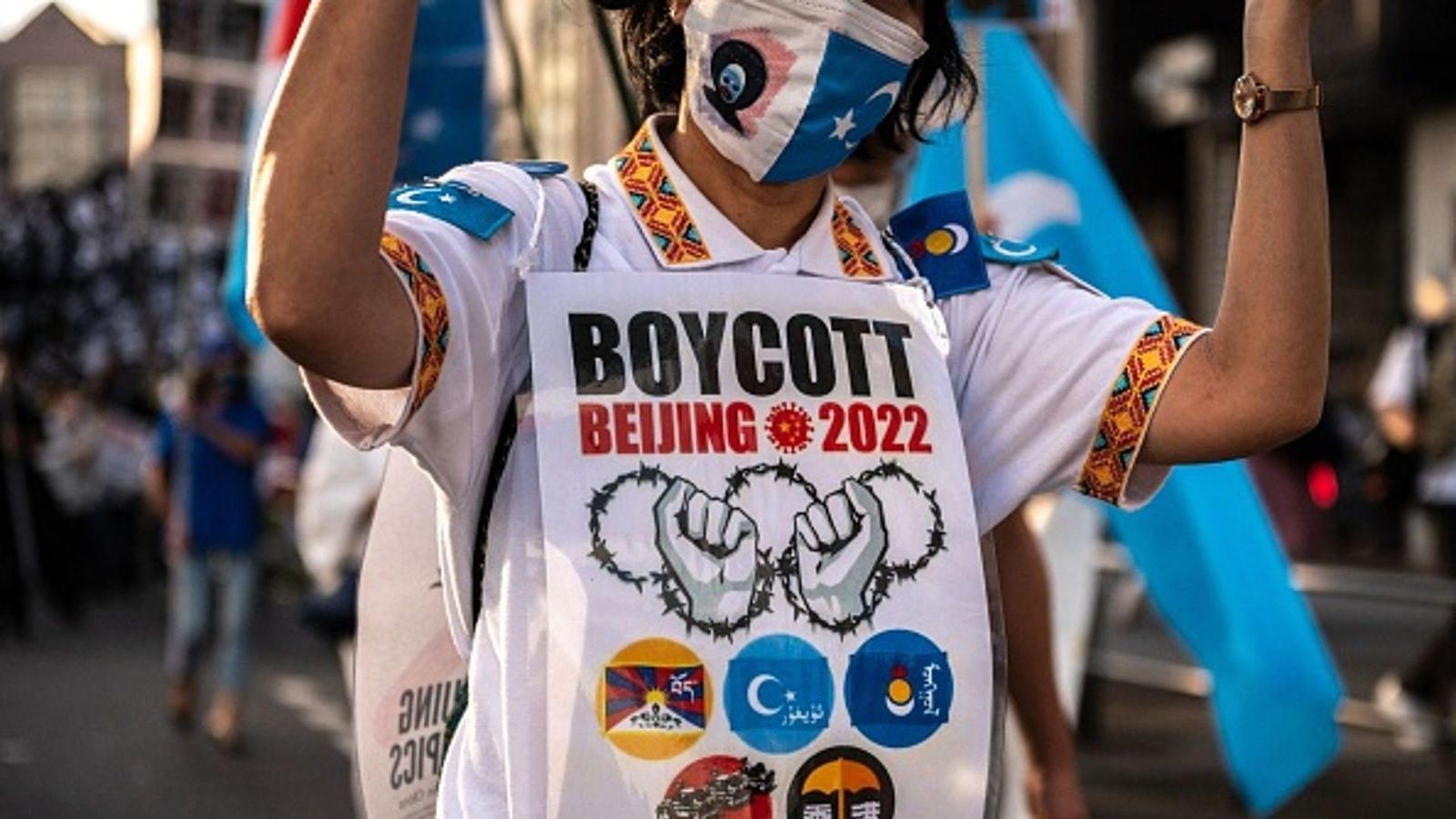After the successful organisation of Tokyo Olympics and Paralympics in Japan this year, the world has now turned its back on the Winter Olympics scheduled to be held in China in February, 2022.
It all started with United States of America and now countries like Australia and Canada have also boycotted the Winter Olympics to be held in Beijing. The reason for this is said to be violation of human rights.
In a situation like this, it is believed, that after these countries, many others can follow suit and also oppose the games along with USA and Canada. In such a situation, several countries may have decided to boycott Beijing Winter Olympics but China did not wait too long to issue a warning.
China warned, on Tuesday, that USA would “pay the price” for a diplomatic boycott of the Beijing Winter Olympics.
“Stay tuned,” Chinese Foreign Ministry spokesman Zhao Lijian told reporters at a daily press briefing.
"The US attempt to interfere with the Beijing Winter Olympics out of ideological prejudice, based on lies and rumours, will only expose [its] sinister intentions," Zhao said.
"The Winter Olympics are not a stage for political shows and political manipulation," he added, accusing the US of "actions that interfere in and undermine the Beijing Winter Olympics."
USA’s stand on this issue
US President Joe Biden first opposed Beijing games last month followed by an announcement of diplomatic boycott. After Biden's statement, the White House Press Secretary Jen Psaki confirmed the boycott, saying that the Biden administration would not contribute to the "colorful event" of the Olympics.
"Involvement of US diplomatic or official representation in these games would amount to ignoring the human rights abuses and atrocities in Xinjiang, China, we cannot do that," she said.
The International Olympic Committee (IOC) called it a "purely political decision for each government, which the IOC in its political neutrality fully respects."
The announcement "also makes it clear that the Olympic Games and the participation of the athletes are beyond politics and we welcome this," an IOC spokesperson said.
Is Omicron the real reason?
New Zealand's Deputy Prime Minister Grant Robertson cited the advent of Omicron variant of Covid-19 as the reason behind the decision to boycott the games. According to New Zealand's state-run news channel TVNZ, Robertson was asked by journalists about New Zealand's position after the US boycotted the Games, to which he replied, "We have already made clear that we won’t be there at a ministerial level.”
Canadian PM Justin Trudeau said that his country is very worried about the continuous human rights violations in China.
“Many partners around the world are extremely concerned by the repeated human rights violations by the Chinese government. That’s why we are announcing today that we will not be sending any diplomatic representation to the Beijing Olympics,” Trudeau told reporters.
Can the show go on?
It is noteworthy that all these countries have protested 2022 Winter Olympics diplomatically and this means that there will be no mingling with the players. Players from all countries will participate in these games but these countries have decided not to send their diplomats. It is believed that a step like this is taken in order to send a strong message to China globally for perpetrating human rights violations.
Atrocities on Uighur Muslims and many other human rights violations have been cited in Xinjiang province of China. Earlier 43 countries had called on China at the United Nations to "ensure full respect for the rule of law" with regard to the Muslim Uyghur community in Xinjiang, where respect for human rights remains "particularly" worrying.
Billie Jean King voices opinion
Apart from this, the incident of sudden disappearance of a Chinese tennis player Peng Shuai has grabbed eyeballs. Peng had accused China's former Vice-Premier Zhang Gaoli of sexual abuse and since then the tennis player was missing. Due to this the Women’s Tennis Association (WTA) had to cancel all tennis tournaments to be held in China.
WTA founder Billie Jean King said she was proud of the organisation for standing up for Peng Shuai after the body took the ultimate step of suspending tournaments in China due to concerns over the treatment of the former doubles world number one.
“I'm very happy the WTA stood for her. There will be a lot of challenges ahead of us, but standing up for human rights and abuse is really important," King, a 12-time Grand Slam winner, told Eurosport at the Sports Illustrated Awards.
But this is not the first time when sports are being boycotted in this way. Previously, multiple Olympics like, 1956 (Melbourne), 1964 (Tokyo), 1976 (Montreal), 1980 (Moscow), 1984 (Los Angeles) and 1988 (Seoul) were boycotted by the various countries due to reasons like war, invasion and apartheid.
New headache
Already roiled by the pandemic and a partial diplomatic boycott, the Beijing Winter Olympics face another daunting challenge in finding airplane seats for the athletes and officials. Ensuring the smooth arrival of participants has "become everyone's concern" because of a reduction in regular passenger flights because of COVID-19, Zhang Liang, director of the organizing committee’s Arrival and Departure Center, said.
The committee and civilian aviation authorities have "established the principle that chartered and temporary flights will be the main means, supplemented by commercial flights,” Zhang said at a media briefing.
"The flight plans have been confirmed and the flight schedules have been released," Zhang added.


